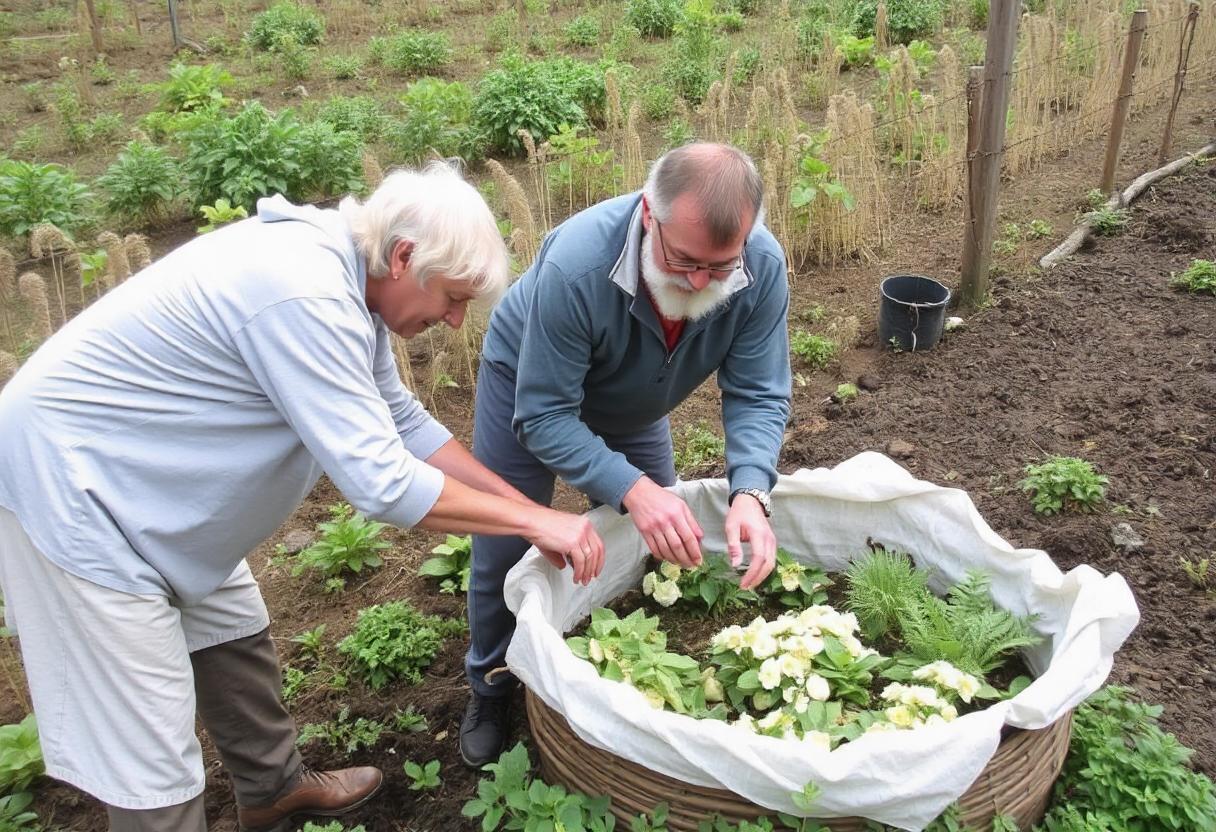
Biodynamic farming is a holistic and sustainable agricultural approach that emphasizes the interconnectedness of soil, plants, animals, and humans. Originating from the ideas of Rudolf Steiner in the early 20th century, this method goes beyond organic farming by integrating cosmic and spiritual elements into agricultural practices.
Principles of Biodynamic Farming
Biodynamic farming is grounded in a set of principles that aim to create a self-sustaining farm ecosystem. Central to this approach is the belief that the farm should function as a closed system, with minimal external inputs. Key principles include:
- Holistic Management: Every component of the farm—soil, plants, animals, and humans—is viewed as a cohesive unit. The health of one aspect directly affects the health of the whole system.
- Soil Health: Maintaining soil fertility through natural methods is crucial. Biodynamic farmers use composts and manures prepared according to specific recipes and plant preparations to enhance soil vitality.
- Cosmic Rhythms: Biodynamic farming integrates lunar and planetary cycles into its practices. Planting, harvesting, and other activities are timed according to these cosmic rhythms, believed to influence plant growth and soil health.
Biodynamic Preparations
A unique feature of biodynamic farming is the use of specific preparations to enhance soil and plant health. These preparations are made from natural substances and are intended to stimulate the farm’s vitality. Some of the most well-known preparations include:
- Preparation 500: Made from cow manure, this preparation is buried in a cow horn and left to decompose over winter. It is then diluted and applied to the soil to improve soil structure and stimulate microbial activity.
- Preparation 501: Made from crushed quartz crystal, this preparation is also placed in a cow horn and used to enhance plant growth and resistance to pests. It is typically sprayed onto the crops during specific times of the lunar cycle.
Biodynamic Farming Techniques
Biodynamic farmers employ various techniques to promote a healthy and balanced farm ecosystem. These techniques include:
- Crop Rotation: This practice involves alternating crops in a specific sequence to maintain soil fertility and reduce pest and disease problems.
- Companion Planting: Certain plants are grown together to benefit each other. For example, some plants can repel pests or enhance nutrient uptake for their neighbors.
- Integrated Livestock Management: Animals are integrated into the farm system, providing manure for composting and helping to manage weeds and pests naturally.
Certification and Standards
Biodynamic farming has its own certification system, known as Demeter Certification, which ensures that farms adhere to specific biodynamic principles and practices. This certification process involves rigorous standards and regular inspections to verify compliance.
Benefits of Biodynamic Farming
Biodynamic farming offers several benefits, including:
- Enhanced Soil Health: By using natural composts and preparations, biodynamic farming improves soil structure and fertility, leading to more robust plant growth.
- Reduced Environmental Impact: Biodynamic practices minimize the need for synthetic chemicals and fertilizers, reducing the environmental footprint of farming operations.
- Increased Biodiversity: The emphasis on holistic management and integrated livestock promotes a diverse and resilient farm ecosystem.
Challenges and Considerations
While biodynamic farming has many advantages, it also presents challenges:
- Cost and Labor Intensive: The preparation of biodynamic composts and adherence to lunar cycles can be time-consuming and costly.
- Limited Research: Some of the practices and principles of biodynamic farming lack extensive scientific validation, making it challenging to measure their effectiveness in conventional terms.
Biodynamic farming represents a unique and comprehensive approach to agriculture, integrating ecological, spiritual, and practical elements to create a balanced and self-sustaining farm system.